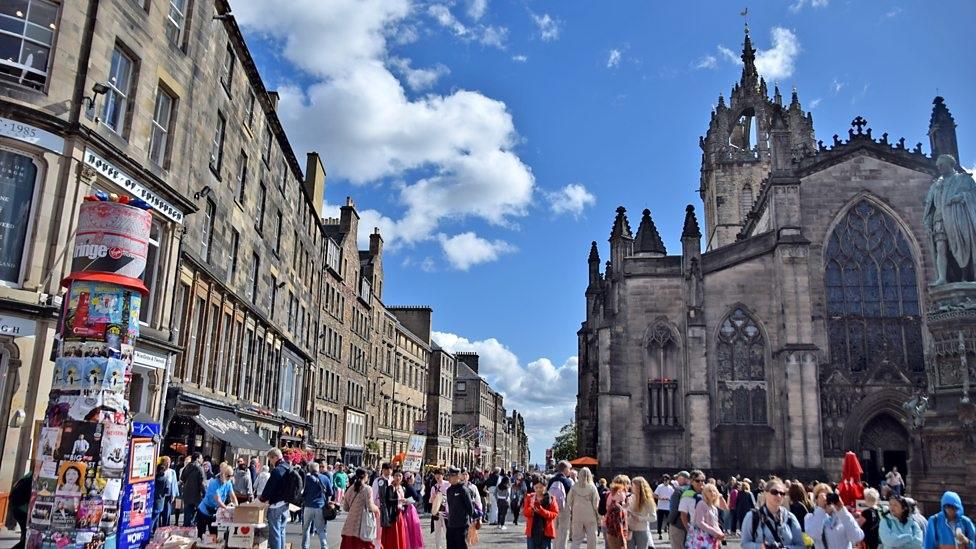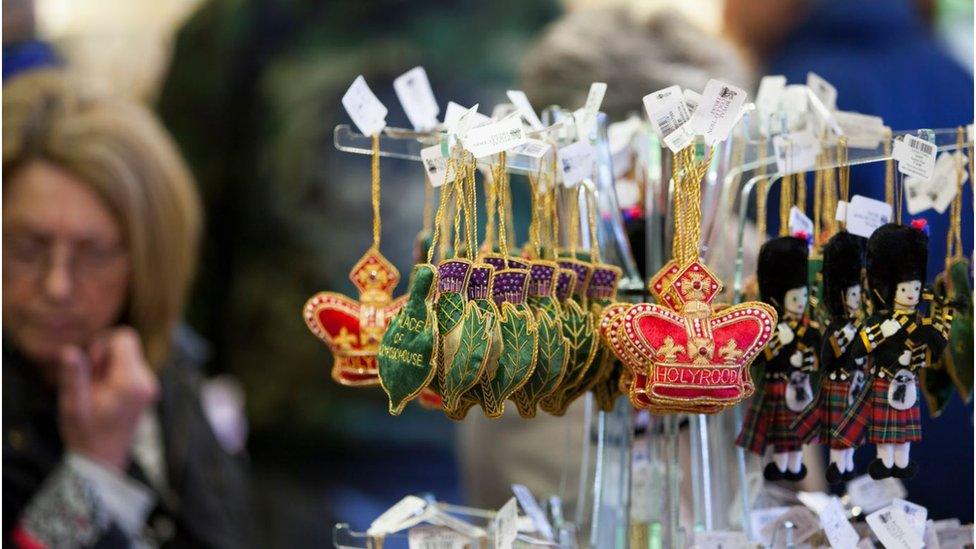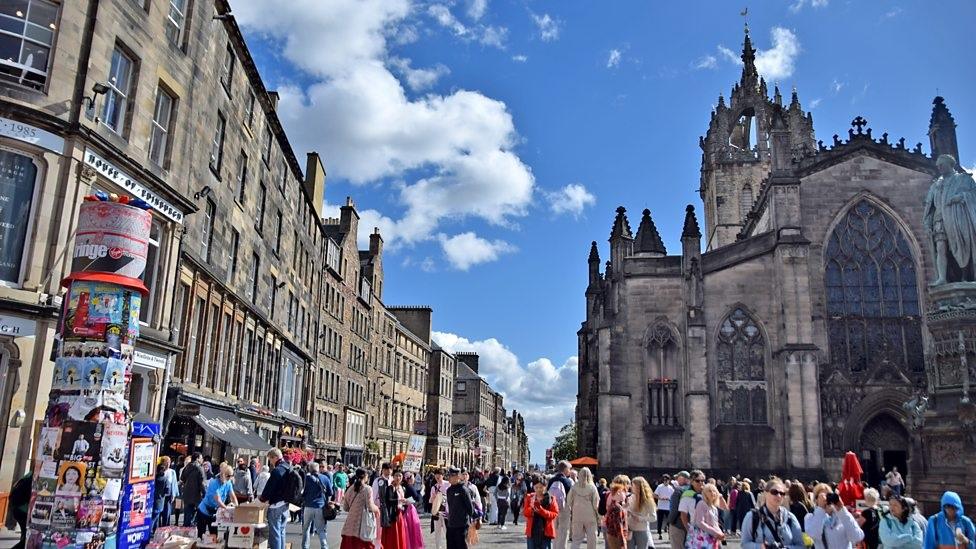Bid to introduce a £2 tourist tax in Edinburgh wins support
- Published
- comments

Edinburgh sees a huge surge of visitors every summer for its festivals
Plans to introduce a £2 tourist tax in Edinburgh have won strong support in a public consultation.
Some Scottish councils, led by Edinburgh, have called for powers to set levies on tourist accommodation.
Figures show 85% of respondents to a City of Edinburgh Council survey backed the move, including more than half of accommodation providers.
The Scottish government has said it will further consult on the issue.
More than 2,500 residents and businesses responded to the council consultation on what it calls a Tourism Visitor Levy (TVL) of either 2% or £2 per room per night.
Is it time for an Edinburgh tourism tax?
The results suggested 90% of residents are supportive of a tourist tax, while 51% of Edinburgh accommodation providers, who would have to enforce the proposal, also support it.
Only 9% of all respondents were opposed to the visitor levy.
City of Edinburgh Council leader Adam McVey, said: "Once again we are finding that there is a huge swell of support for a tourist tax in Edinburgh with residents and all types of business backing a scheme that is fair, sustainable and one which would be reinvested into the ongoing success of our tourism and hospitality industry and the services which matter most to local people.
"Our tourist economy is extremely strong and expected to continue to grow. A majority of businesses agree the vibrancy of our industry wouldn't be threatened by a small levy but would benefit from the additional investment.
"Interestingly, this includes more than half of accommodation providers, dispelling fears in certain quarters that hoteliers wouldn't support a TVL."

Tourist trinkets for sale in Edinburgh where visitors spend over £1.8bn every year.
Of those who expressed an opinion on the level of the charge, 72% supported a rate of £2 per night or 2% of the total bill - but a third of accommodation providers felt this rate was too high.
It is estimated the tax could raise between £11.6m and £14.6m per year in Edinburgh.
Marc Crothall, of the Scottish Tourism Alliance (STA), said more transparency was required around the survey's results, and questioned whether it was fair for the council to claim "significant" support from Edinburgh accommodation providers, given that they made up only a small proportion of respondents.
He said: "The results of the recent tourism tax consultation is, in our view, ambiguous in its claims - specifically with reference to the 'significant' support from accommodation providers in Edinburgh.
"Just 17% were from all businesses types, both within and outside Edinburgh, which is very low considering the importance of the tourism economy... and only 7% of these were from Edinburgh accommodation providers.
"78% of respondents were from Edinburgh residents and just 3% were tourists."
'Seeking clarity'
He added that the figures indicated that only 87 Edinburgh accommodation providers - less than 5% of all tourism businesses in Edinburgh - had said they strongly support plans for a tourist tax, and that it was unclear from the council figures what type of accommodation providers these are.
Mr Crothall said: "Greater transparency is required and we will be seeking clarity from Edinburgh city council to better understand the results of the survey and pose questions that we and other member trade associations have as a result of today's announcement."
The Scottish government had been firmly against allowing councils to set a tourist tax but Nicola Sturgeon signalled a change in direction last year when she said there should be further consultation.
The first minister said the issue requires "very careful consideration".
Alison Evison, president of council umbrella body Cosla, which is pressing for local authorities across Scotland to be given the powers to introduce tourist taxes, said: "This is important news and certainly strengthens the case for the introduction of a local tax - to address local issues - in this case a transient visitor tax for Edinburgh.
"This is hard evidence from a consultation that shows an overwhelming appreciation of the potential benefits of a discretionary tax."
- Published13 September 2018
